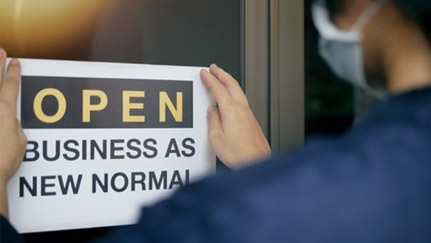Subscribe to our newsletter for timely content in your inbox

Details to consider when deciding whether you want to ask your customers to sign a waiver of liability.
As people begin venturing outside their homes in a post-COVID-19 world, they may notice that some businesses are asking that they declare that they do not currently have COVID-19. Whether it is the gym, salon, dentist, doctor’s office, or school, some businesses may request that customers sign a COVID-19 general waiver of liability, which states that the customer will not hold the business legally responsible if they later test positive for the disease.
A general waiver of liability is a contractual agreement, signed by a business and a customer, informing of the risks being taken and waiving the right to sue if injuries are incurred. Waivers of liability are being used with the intent to protect the interests and assets of the business so that they cannot be held liable for injuries, including death. Indirectly, the very act of signing a waiver raises the awareness to the risk and seriousness of the matter.
Individuals who have contracted COVID-19 could be asymptomatic – they do not show signs of illness. These individuals may not even know they are positive for COVID-19. The Centers for Disease Control and Prevention (CDC) has encouraged the use of face coverings and other measures to prevent the spread of the disease. A business owner may have the legal right or legal standing to enforce a face covering requirement. As a business owner, it is recommended that you consult an attorney regarding the disease prevention requirements, such as face coverings, that your business selects to put in place.
As a business during this time of COVID-19, consider the following Q&A:
At the time this article was written, there is no court precedent regarding the use of waiver of liability forms for COVID-19; however, things may shift over time. Hence, it is important to approach with caution, engage counsel and take steps to mitigate customer exposures by following CDC guidelines.
Remember: A waiver does not replace the need for additional risk management protections and mitigation practices.